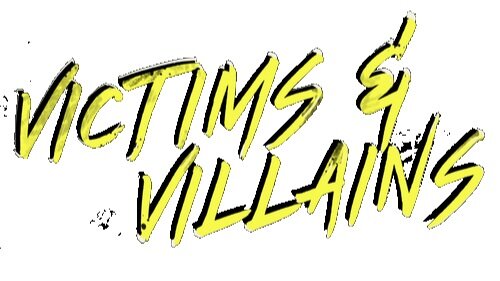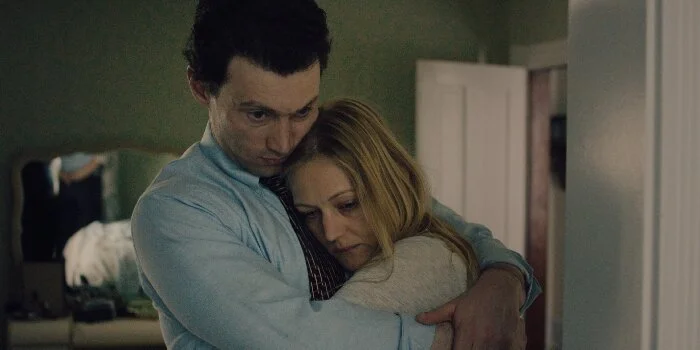Is it even logical to say that, in our modern 21st Century era, that we truly understand PTSD? Post Traumatic Stress Disorder wasn’t even acknowledged by science as a legitimate disorder until 1980. Psychologists were mostly seeing these effects in soldiers. Originally known as “shell shock”, symptoms have been around as early as 1917, the era of World War I. It seems crazy that we didn’t know how to properly diagnose it until a mere forty years ago. PTSD appears in more than just soldiers coming home from war. PTSD can come in many different sizes and shapes.
For some of us, we’ve experienced PTSD when our eyes witness something unpleasant or brutal. For others, it comes in the guise of something more extreme like violence or an assault. I’ve never been to war; so I can’t necessarily speak to that aspect of PTSD, though I have been in two car accidents and have been hit by a car. When I got hit by a car, I was 17 years old and lived in a small city where I used to walk everywhere. For me, coming out of that accident I had recurrent episodes of the event when I’d walk by a certain spot. Same with my two accidents. I went out of my way to avoid certain portions of town, even if that met my commute a little longer. Things like violence, assaults, car accidents, and the ugly side of life have existed way before 1980.
It’s baffling to me that we didn’t understand PTSD before then. Maybe it was the age of science that allowed the breakthrough. Or maybe it was our own ignorance or stigma of mental health. PTSD wears multiple faces and costumes and is many things to many different people. Dean Kapsalis is the writer-director of the thriller, The Swerve, which places PTSD central to its narrative. The film depicts a middle-aged woman (Azura Skye) who experiences PTSD from a car crash and is trying to cope with its effects. Much like our own understanding of PTSD, Kapsalis doesn’t seem to have a grasp on it either. The Swerve is nothing more than a bland melodrama with a few occasional interesting tidbits. From the writing side of it, Kapsalis proves viewers with a dull narrative that shies fearfully away from creating strong characters and an enticing narrative.
It is a full first act before we even find out why Skye is the way she is. We meet her family, husband and two sons, find out that she’s a teacher and even get to meet her parents and irresponsible sister. Introducing viewers to the world is fine, as long as they have purpose. To an extent, her immediate family does have some function in the overall narrative. Even then, it feels like it is stretching for them to be used purposefully. By the time that the PTSD trigger is introduced it never has an overarching significance, no matter how much the story attempts to establish this for Skye. Her actions feel more reactionary to depression, rather than PTSD. In fact, there is a scene between Skye and her husband, played by Bryce Pinkham, where she randomly brings up this tragic event she underwent. When this scene takes place within the movie, that event feels like an afterthought. The character feels more responsive to depression than anything else. The character reaction just feels weird in this movie, which is not even to mention the predictable moments of the film.
This is where the blessing and curse of the Swerve begins to fall in line. While Kapsalis might walk on the bland side with his script, his camera work as the director more than makes up for it. The way he approaches shots from multiple angles leaves a significant impression. Though, this is also where the curse begins to take shape. The way in which certain characters are framed become predictable plot points that are easy to spot. One character is introduced within the first act and it’s easy right away to say they’re gonna play into the downfall of our protagonist, simply by the way they are shaped on camera. The Swerve is littered with examples just like this one. Ending on a good note, the score by Mark Korven is nothing short of incredible. His music is the real star of the movie.
Overall, The Swerve is an exercise in the beauty of breathtaking cinematography and a tremendously haunting score by Mark Korven. Outside of those things, the film falls unfortunately flat, resulting in a 95 minute movie that is artistically wrestling with its identity. The movie fixates itself too heavily on its world building, not its characters. In the end, The Swerve emerges as nothing more filler content set to beautiful music.
RORSCHACH RATING:
If you or someone you know is reading this right now and you are struggling with suicide, depression, addiction, or self-harm - please reach out. Comment, message or tweet to us. Go to victimsandvillains.net/hope for more resources. Call the suicide lifeline at 1-800-273-8255. Text "HELP" to 741-741. There is hope & you DO have so much value and worth!
Victims and Villains is written Josh "Captain Nostalgia" Burkey (and produced by), Caless Davis, Dan Rockwood, & Brandon Miller. Music by Mallory Johnson and others. The Swerve is property of Epic Pictures. We do not own nor claim any rights. This review was edited by Cam Smith. The Swerve is now available on VOD and Digital now!
You can now support us on Patreon. Help us get mental health resources into schools and get exclusive content at the same time. Click here to join today!



